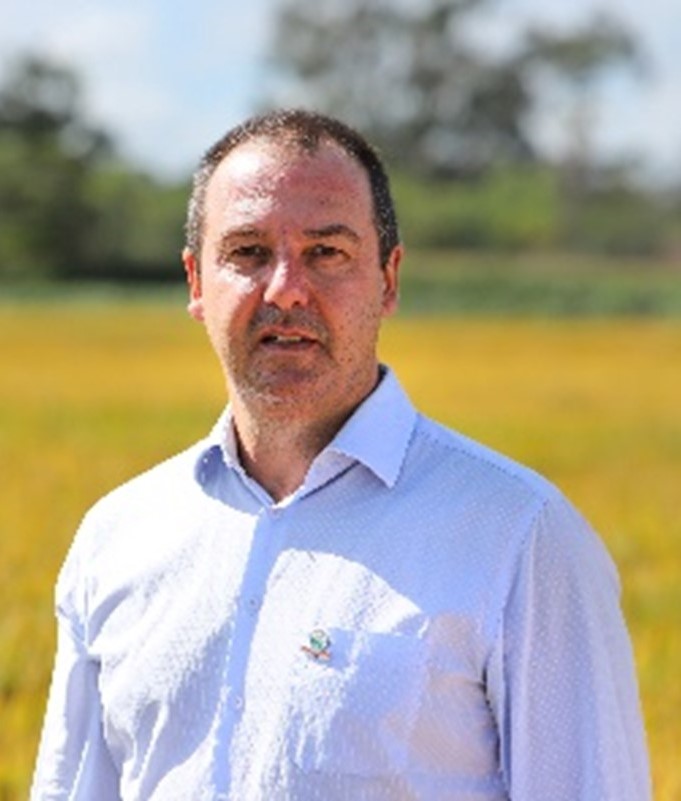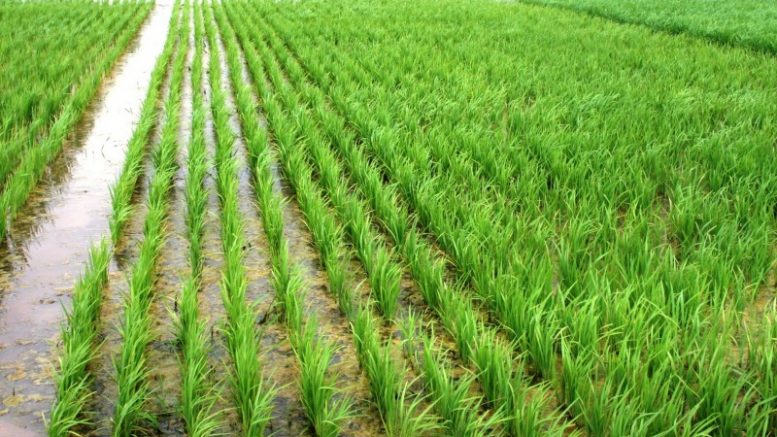“We request that competition be carried out fairly…”
Alexandre Velho is the president of the Federation of Rice Farmers Associations of the State of Rio Grande do Sul – Federarroz, a board member of Embrapa Rice and Beans, of the National Rural Learning Service at Rio Grande do Sul, and a rice and soybean farmer at the Parceria Cavalhada farm.

Alexandre Velho, president of Federarroz
AgriBrasilis – Why are there accusations of disrespect for labor rules in rice farming in the State of Rio Grande do Sul?
Alexandre Velho – The work that is done in farms has specific characteristics, so that the application of labor legislation in a formalistic manner and without the necessary adaptations creates space for mistaken perspectives about the sector.
We are responsible for guaranteeing the country’s food security, since more than 70% of the rice produced in Brazil comes from rice farms in the State of Rio Grande do Sul, that create about 15 jobs for every 1,000 hectares within the farms and more than dozens indirectly.
Labor Court cases involving rice farming are insignificant within the general context. This demonstrates all the social concern of the farmers with regard to the well-being of their employees.
AgriBrasilis – What is “socio-environmental anti-dumping” and why does Federarroz request this practice?
Alexandre Velho – Socio-environmental anti-dumping measures seek to mitigate competitive inequalities between countries.
Social and environmental costs often make the Brazil-cost an impediment to the free market, as competing countries have less rigid rules, so that the costs of production are lower than those practiced in Brazil.
We request that competition be carried out fairly, so that only rice produced under the same legal conditions to which Brazilians are subject is allowed to enter Brazil.
AgriBrasilis – You said that the free interest rate of the Harvest Plan (the Brazilian government’s rural financing plan) for 2023/24 is cause for concern. Why?
Alexandre Velho – Because of the high demand for resources to plant a hectare of rice, any percentage difference in the interest rate causes impacts on the financial costs of operations.
With the Selic rate maintained at current levels, free interest rates easily reach more than 16% per year, and that is not compatible with agriculture.
AgriBrasilis – What is the relationship between prices and costs in rice farming? Is the national rice market competitive?
Alexandre Velho – Although the cost has increased by an average of 60% in the last two years, the rice farmers do not control the sale price of their products. This depends on factors such as supply and demand, consumption, exports, the international market and parity with Mercosur (exchange rate).
There is a lack of competitiveness mainly for the rice from Rio Grande do Sul (70% of national production) because of tax differences between states and tax benefits existing in large consumer centers such as the States of Rio de Janeiro, Minas Gerais and Espírito Santo.
AgriBrasilis – Are rice farmers intensifying crop rotation? Why should we aim for “multi-harvest” production?
Alexandre Velho – The intensification of crop rotation is necessary to increase rice yields and to consequently be able to face the high costs of production.
When we have different crops in the areas, we increase soil fertility and productivity because of the decrease in resistant invasive plants, that reduces the need for the use of pesticides.
The question of multi-harvest production is exactly in this sense of seeking alternatives, such as soybean, corn and livestock, that are tools that the farmer has to improve his productive conditions.
AgriBrasilis – How does the devaluation of the dollar impact the rice market and what should we expect for the coming years?
Alexandre Velho – When we have a decrease in the exchange rate, we make exports more difficult, that is essential to bring a reference to the domestic market and bring Brazilian rice to greater competitiveness for various destinations in Central America and also North America, mainly.
We must seek new markets and have an exporting culture. We cannot just be market opportunists. We hope that the opening of new markets and the consolidation of Mexico as a destination for paddy rice will increasingly bring about an adjustment in the supply and demand of the internal market and even bring about a firmer posture of the industry in relation to retail.
Brazilian rice continues to be a product that has affordable prices and of high quality, free of residues as attested by Anvisa. What we need to value is the farmer, who continues to supply this product that is exported to more than 100 countries.
READ MORE:

